Will AI change the way we use the internet? With the enormous rise of Generative AI, this big question remains. Similar to the massive explosion of tech in the 2000s, new technologies emerge while old ones fade away. Are search engines next? The emergence of AI search has massive consequences for Google and with the search engine market worth a staggering $185 billion, there’s a lot to gain or lose in this race.
LLMs and AI Search: What’s the Difference?
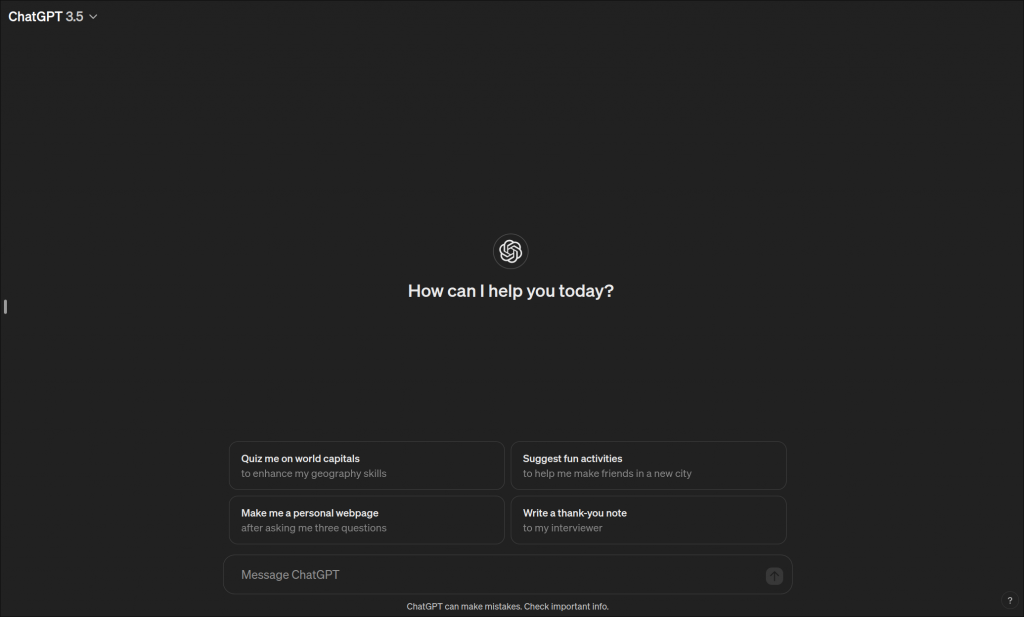
We’re all familiar with AI chatbots like ChatGPT by now; they use Large Language Models (LLMs) to hold a conversation with users. Nowadays, you see them appearing up in all types of uses, from customer support to email assistants, but a common use has always been to ask them questions. It’s more convenient and faster than searching for something yourself.
The main flaw of using LLMs as information sources is that they’re still prone to hallucinations and information cut-off. Sometimes these chat-bots just make things up, or don’t have access to up-to-date knowledge. While the industry is hard at work to eliminate these issues they damage the credibility of these services as a source of reliable information.
AI Search poses to combat both of these issues. Instead of using an LLM chatbot in the traditional sense, AI search attempts to use the LLM model as an agent, able to perform its own decision-making steps to accomplish a task. Now, if you give that LLM agent a way to interface with the internet, you basically have an AI search platform. The idea is simple but effective.
Its ability to scrape the internet much faster than humans and keep track of information from various sources in its reply make it an attractive alternative. You get all the benefits of an all-knowing chatbot with the added help of searching things online.
Should Google Be Scared?


Yes. In fact, Google is very scared. Let’s rewind to when ChatGPT was released – it took the world and Google by storm. No one was expecting such a breakthrough back then, and it had massive implications for Google. The fear was that if people started to pile on and use LLM chat-bots as their primary source of information, where does this leave Google? Google controls 80% of the Search Engine market worldwide, and 77.4% of all its revenue comes from ads on these services. You can see why this is their nightmare. Google’s fears have not been a secret from the start, and in fact, is what pushed them to bring out Gemini.
To make matters worse, there’s growing evidence that Google Search just isn’t what it used to be. In a world that is computer-literate and businesses are all aware of SEO optimization, we’ve hit a point where Google Search is more of a ranking list that everyone is trying to be first on. It’s becoming less and less reliable as a source for accurate answers, which brings more weight to the argument: Why not just use an AI that can do the picking out for you?
The AI Search Leader: Perplexity
You don’t need your own LLM model to be able to make an AI search platform. This is something Perplexity proved through its use of AI search. Perplexity takes the power of many LLM models and packs it all in one search engine platform.
It’s a simple platform – you have a search bar, and you ask questions, just like you would with a traditional search engine. However, the magic happens behind the scenes. Based on which model it thinks would work best for your query, Perplexity quickly scours the internet, YouTube transcripts, images, and other online resources to gather relevant information. It then processes this information using its AI capabilities to provide you with a comprehensive reply.
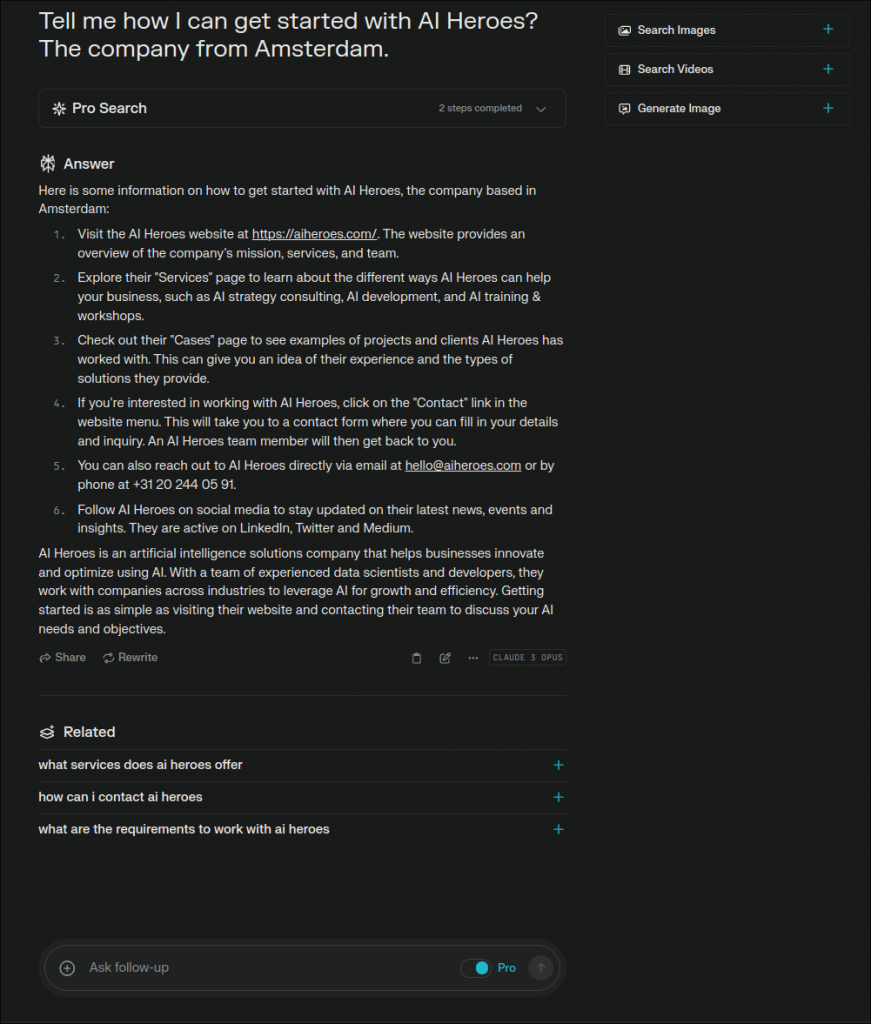

Perplexity’s approach to AI search is both innovative and user-friendly. It works well, and we highly recommend trying it out. It’s a glimpse into what the future of search might look like – a future where AI assistants can quickly and accurately gather information from across the internet and present it to users in a concise, easy-to-understand format.
Gemini Search, Bing Search, ChatGPT Search
With platforms already out there offering AI-powered search, what do the big players in the tech industry have in store? From the beginning, Microsoft was the first to bank on this idea with the launch of its AI-enhanced Bing Search. By integrating OpenAI’s language model into Bing, Microsoft aimed to provide users with more intuitive and conversational search experiences.
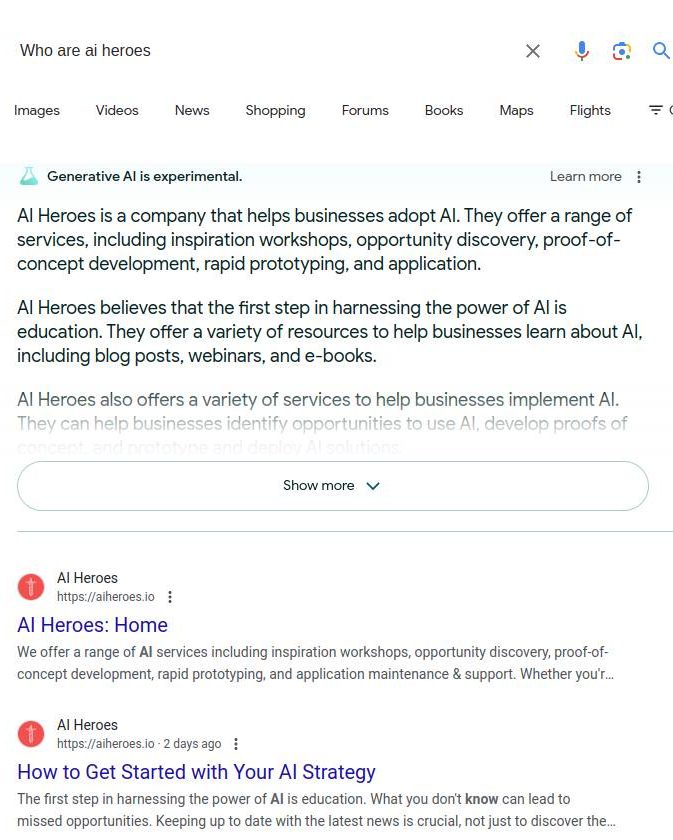

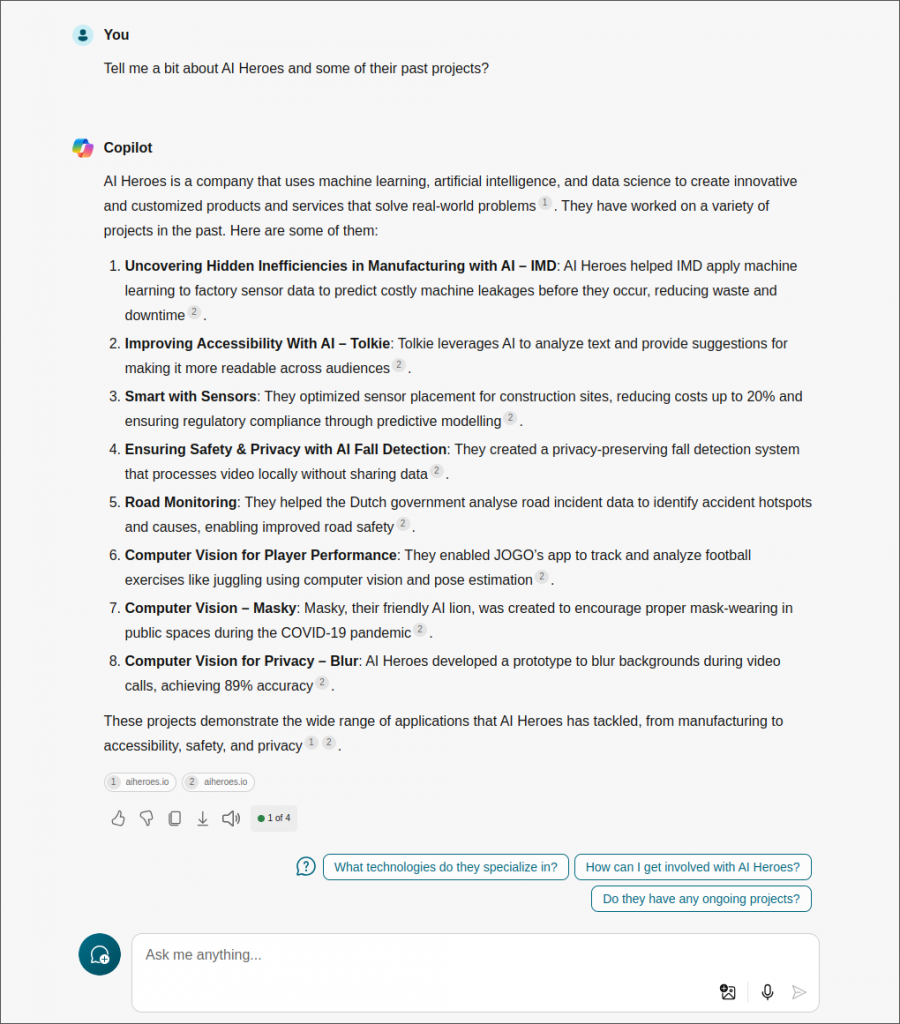

User Interfaces of Google Gemini (left) and Bing Search (right)
However, the landscape is rapidly evolving, with growing interest from other major players. Recent leaks have made public that both OpenAI and Anthropic are working on their own search platforms. These companies plan to integrate search capabilities directly into their chatbots, such as ChatGPT and Claude, respectively.
Google is also trying to change with the times. They have already integrated Google Search into their Gemini chatbots, showcasing their commitment to AI-driven search experiences. However, despite their efforts, Google’s Gemini chatbots have yet to gain significant traction due to underlying performance issues with the model. These issues have hindered the widespread adoption and user satisfaction of Gemini Search.
The trajectory is clear, and the search market is going to be crowded soon, but with a lot to gain, it’s going to be an interesting development that might change the way we all use search, particularly for businesses that rely on SEO to gain traffic. There’s also a question that in a future with no traditional search, how will websites make themselves known? Would this just cause more problems for everyone involved? A hybrid future might be the way to go.
Want to stay up to date with AI news? Get these updates right in your mailbox. Follow our Future Minds newsletter.
